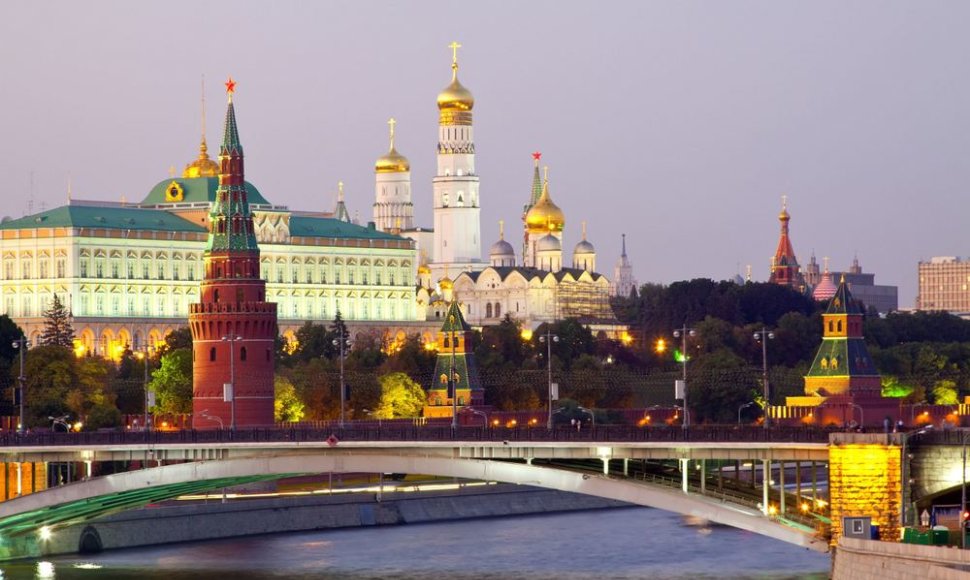Jackson, founder and president of the Project on Transitional Democracies, also believes there has been no such an important summit related to the eastern part of the post-Soviet space since the 2008 Bucharest Summit when Ukraine and Georgia were refused NATO membership plans.
Now the tasks of promoting democratic process in the post-Soviet space has shifted from NATO to the EU, Jackson said.
„Political change and transformation realizes itself after these economic structures have begun. Hence the Eastern Partnership is exactly the right response with beginning of DCFTA, the Association, it has visa liberalization and travel. It's assembling the soft power mechanisms that define the political culture of Western and Central-Eastern Europe,“ Jackson said in a speech at the Eastern Europe Studies Centre in Vilnius on Tuesday.
In his words, the situation is not „immediately great“ ahead of the Eastern Partnership summit in Vilnius in November.
Preparations for the Vilnius summit will take place despite continuous financial woes in Southern Europe and the upcoming general elections in Germany, and no decision will be made at the summit without Berlin's approval, Jackson said.
„Leaving the Eastern countries with no choice but Russia is a very dangerous business. If it is clear that Europe cannot give them association and free trade or visa liberalization, then there is really no choice but the Customs Union,“ the US expert said.
Talking about Ukraine, he reminisced of a comparison that this country is like a suitcase without a handle and you can't take it with but you can't take your eyes off it either. The expert believes Ukraine will come to the Eastern Partnership summit having an „alternative model“ from Moscow to join the Customs Union rather than waiting for an Association agreement with the EU in the vague future.
„So they are attracted to both things. The first test of the first proposition for three reforms is five and half weeks away, on May 1st. And, frankly, if you don't meet that deadline, then you can't get the paperwork done for the treaty and other things by the end of November. So it's a very short fuse,“ Jackson said, adding that Ukrainians are good at spoiling everything.
„The other pressure on this summit is that Russia clearly has an alternative model developed written, promised and on paper. Europe doesn't. That's a little awkward,“ he said.
According to Jackson, as key European participants will be focused on Ukraine at the Vilnius Summit, one should not forget smaller Eastern Partnership countries.
„There's also a problem of doing a lot for Ukraine and not doing anything for the smaller countries. Their troubles aren't as great as troubles of Ukraine, so why are we doing something for Ukraine and not helping Moldova, Georgia, Azerbaijan or Armenia?“ the strategist said.
In his words, the attitude that you don't have communicate with countries with different values is wrong. Jackson believes the real political culture of the post-Soviet space towards the West opened up not at the time when the Baltic states tried to integrate into NATO and the EU but at the time when a dialogue with Ukraine, Georgia or Moldova started to develop and it emerge that their post-Soviet baggage is way bigger.
„It's a famous Merkel question that these people do not share our values hence we can't talk to them. That's a very unusual statement. What do diplomats do if they don't talk to people that do not share our values? Isn't that a job of a diplomat, isn't that's all they do? Because if people shared our values, why would we need diplomats?“ the US expert said.
„We know what the threshold conditions are for membership. That's integration and full subscription to the values. But what's the threshold conditions for association? If we assert that we're dealing with barbarians to begin with they're not gonna be Europeans for several hundred years. So if you don't talk to them for several hundred years that's not gonna do much. So obviously Merkel was wrong about that,“ he said.
People need to find balance with a threshold to allow supporting an open dialogue with partners in the East without forgetting Western values, Jackson said.
In his words, the Eastern Partnership program hasn't given much over the last four years.
„It was a policy statement without actually policies within the statement,“ he said.
Asked to evaluate the Eastern Partnership's achievements, Jackson said: „None.“
„So this becomes a rather sporty and lets say windy crossing. There's gonna be a lot of waves out there. There's gonna be a lot of pressure on Vilnius summit,“ he said.
„This is really the last time for the Commission to act after it dissolves in 2014,“ Jackson added.












